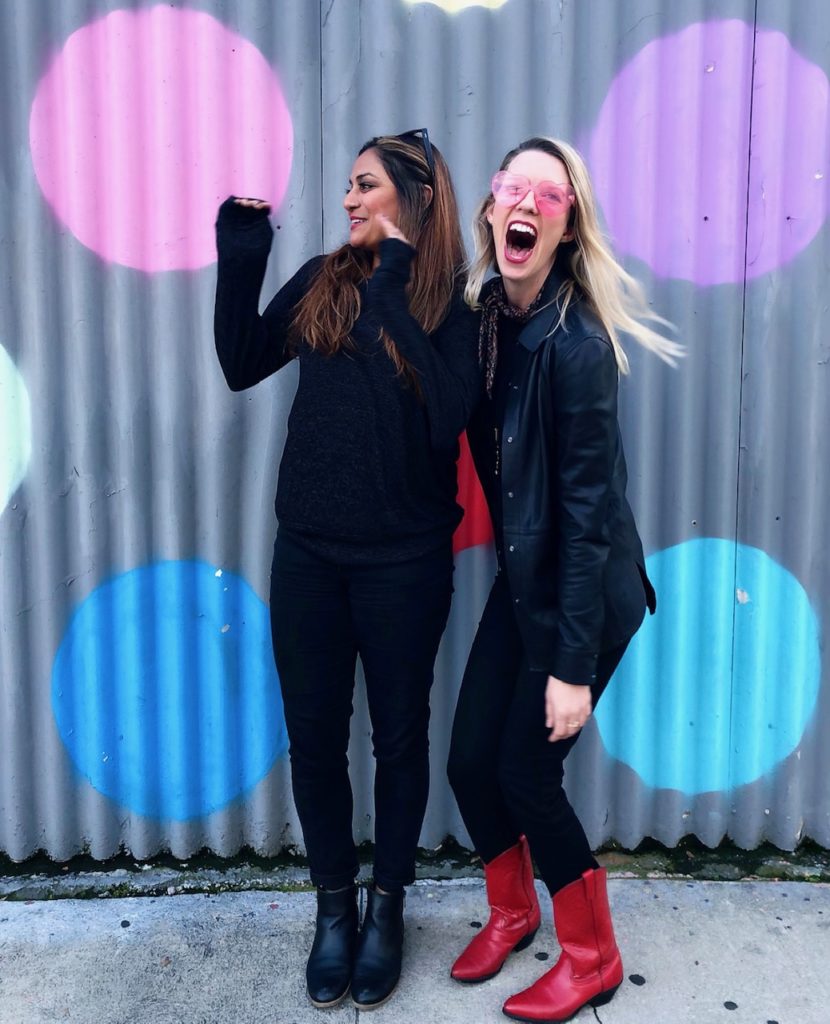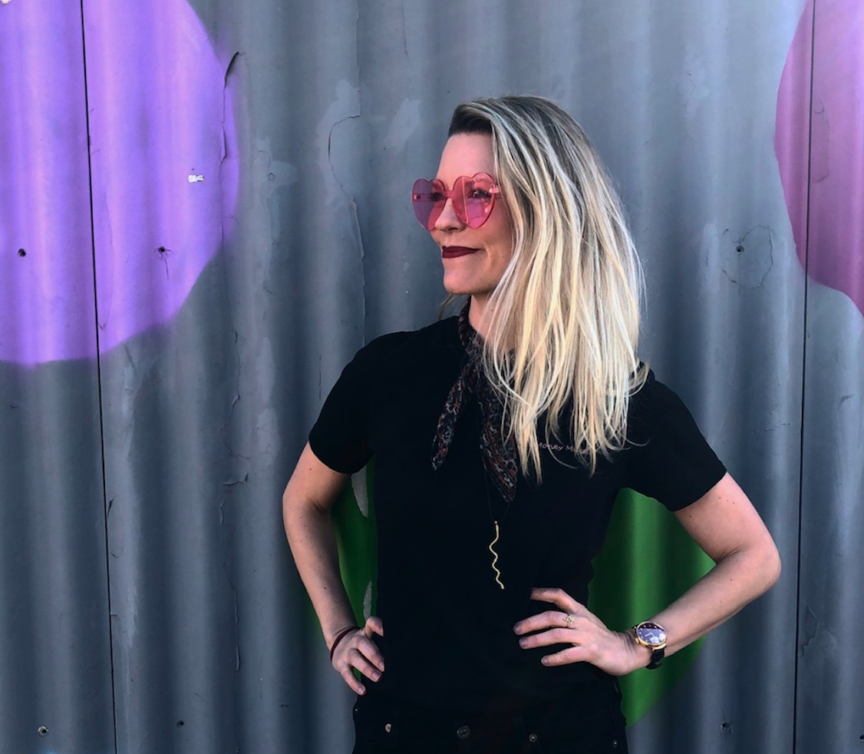As a teenager, Stephanie Xenos hid every single dollar she earned in and around her bedroom. The self-professed money-hoarder was obsessed with saving at such a young age and credits her odd hobby as the reason she’s now “retired” at the age of 32. And perhaps why she started Money Muse, a company aimed to empower women to achieve financial independence.
On the blog, we talk a lot about living our best lives, especially as it relates to traveling solo and stepping outside comfort zones. What we don’t share about nearly enough is the planning and budgeting involved to make those things happen, until now.
We sat down with Xenos to discuss why women should care about money, the importance of aligning spending habits with our personal values, and what she plans to do now that she never has work. Ever again.
You’re a former NASA engineer and rocket scientist who eventually sold all her things and moved to Europe?
When I was young, I had a lot to prove. I chose to study physics at UCLA because I thought it would be the hardest major, and I assumed that the hardest things were what made you money. Pretty silly, but I was a kid!
I soon learned that getting a job with a physics degree wasn’t quite as easy as something like engineering, which was specialized and highly applicable. So I pushed hard to get an internship at Caltech, which eventually got my foot in the door at NASA’s Jet Propulsion Laboratory. I was constantly pushing myself to apply for things that scared me. When I learned of SpaceX, I heard it was crazy place where people worked insanely hard on things that were impossible, and that’s how I knew I wanted to work there.
From there, I used my social skills to get out of engineering and into management, which at the time sounded very interesting to me. I’ve always been great at building camaraderie and motiving people to get shit done, so it was a natural path. Through all of this, I always had it in the back of my mind that one day I would move to Europe. I was born in Greece and have dual-citizenship, so I thought it would be a shame not to use it. I had a lot of fantasies about moving to Europe my whole life. Europe always seemed so sexy! A place where people worked to live instead of living to work. Very different than my early career.
You once said, “everything I have, I owe to fear.” Tell me more.
My childhood was rocky to say the least. Either way, I grew up father-less and poor. My mom eventually remarried a man that had money, which at the time seemed amazing. I remember having my own room. It was awesome. But he ended up being abusive to us and my mom couldn’t leave him because of her financial situation. It was really hard, and it still is a hard thing for me to swallow. But she stayed with him and I learned just how important money was to independence and safety. My way of coping with this situation was to become an independent overachiever. I started saving money, opened my Roth IRA at 18, learned to invest, and started counting the years until I could self-sufficient in a way that would never require me to lean on anyone else.
And the rest is history?
Ha, you could say that. From there, I started saving everything I could. I lived by a few rules: 1.) I never charged more on a credit card than what I could pay off immediately. 2.) Anytime my financial situation changed, I got a new job or had a new bill, I made a new spending plan. 3.) As each year passed, I increased the percentage of my income I was saving.
Tell us what inspired Money Muse? When you speak to and work with women, what is it that you hope they gain?
Women are having a moment right now. More than ever, we’re showing up and demanding equality in all parts of life. We know knowledge is power, but often even the most successful person doesn’t feel confident in the management of their finances. I discuss why it’s important to save and invest, how to spend in a way that expresses your values, and how to prioritize what to do with your money. If you aspire to have financial freedom, are curious how best to leverage your money, or just want a safe place to ask any questions that are too taboo for the dinner table? No matter what it is, I want to help. Money Muse was founded with the intent to empower womxn to achieve financial independence, from a place of desire rather than fear. I want women to own their finances just like we own our businesses and run our households.
Retiring at 32. That’s impressive and admirable. But I think most people hear that and still don’t think it’s possible—at least for them. What is it that you want others to know about about financial independence?
The truth is there is no one definition of financial independence. For me being financially independent means that my investments are making enough money to support me, without having to work. That doesn’t mean that I stop working, it means that I have the ability to say “no” to anything that isn’t in line with my values or my goals. The most important thing I did that allowed for my financial independence was reducing my expenses. If I traveled the exact same path, invested in all the same things, but was still spending what I did before I “retired”, I couldn’t afford it. Since retiring, I’ve cut my expenses by more than half. Moving into a smaller place, selling my car, changing my habits. It isn’t for everyone, but for me it’s worth it.

We talk a lot about living one’s best life in terms of traveling. What we don’t talk enough about is the part that isn’t so sexy—the planning and budgeting involved.
We don’t ever talk about it! I’d say how can you really give your best life if you’re not confident in your finances? I mean, I know how scary it was to quit my job, sell everything, and move abroad- there is no way I could have done that without the planning, budgeting, and saving ahead of time. I wouldn’t have had the confidence. I would have chickened out. Even with all the planning, I was still terrified. I needed to know how much I expected to spend each month aboard, which means I needed to know where I was planning to travel and what the cost of living looked like. Once I had a good guess on monthly expenses I multiplied by 12 and then added 20% just in case my estimations were bad! Then I had a goal and a timeframe and could work backward to figure out how much I needed to save each month to reach my goal. It’s not rocket science! If you can get into the planning and budgeting, by allowing yourself to imagine what life will be like on the other side, it can be fun.
Money talk can seem overwhelming. Where does one start?
Start by listening to a money podcast on your drive to work, or when you’re walking your dog. Let the information flow into your mind in a way that doesn’t take effort on your part. Once you start hearing things two or three times, they will start to make sense without you having to “figure them out”. I love Motley Fool Answers for all things related to money. So other great ones by womxn are Afford Anything, Our Next Life, Mo’ Money, and So Money. If reading a book about money doesn’t make you want to barf, check out Women & Money, The Year of Less, Broke Millennial, The Financial Diet, or The Last Safe Investment.
Journeying solo and stepping outside your comfort zone are both similar to striving for financial independence in the fact that they require initiative and curiosity that comes from within. Why is it so important to want this for yourself?
I too feel that they are very similar. It’s scary to take a solo trip, it’s scary to learn new things, it’s scary to change your life. We all want the same things – love, security, excitement, fulfillment. I believe that if you’re willing to take risks, put yourself out there and be brave, you are much more likely to find those things. For me, happiness means growth. Growth, curiosity, and self-expression are fundamental to my values. And to have those things, I have to throw myself out there.
Tell us about your relationship with money and travel?
My relationship with money isn’t perfect. It has taken, and still takes, a lot of work for me to feel safe. I still worry that I could make a mistake and end up homeless and alone. I know that’s my upbringing talking, and I acknowledge the thoughts, and then put them aside. My ideal self sees money as a vehicle for curiosity and exploration. That means Brené Brown workshops, ceramics classes, trips to the woods, sauna time on Wednesdays, and travel all over the world. For me travel is the same as self-exploration. Learning about other ways of life is eye-opening and priceless. Every time my protestant work ethic starts to mouth off about me not doing “enough”, I think of my family in Greece and how happy they are spending their life focused on food and family.
Can you share some of your favorite cost effective travel secrets?
I often choose my travel destination based on sales that pop up. I think it’s exciting to put a price in Kayak and just see how far I can get. I love traveling in places where you can get a lot for your money, as well as experience something other than a thriving capitalist society. Some of my favorite areas are central and south America, Turkey, and Morocco. For solo travel, I really loved Japan. I felt submerged in a totally different world, but still very safe. I used to do a lot of couch surfing too, but now I mostly “splurge” for airbnbs. Some of my best finds have been wandering small streets and getting lost, seeing some locals step into a signless door and following them. I also like to check out any cheap local spots that are popular, since people there are in a casual environment and more likely to chat with you. I always make friends while traveling solo. That’s the best part! I’m really into building community and even when I’m abroad, I try to connect with people.
*In honor of International Women’s Day, we’re doing a special giveaway—two hours of one-on-one financial coaching—where you’ll learn about saving and investing in order to live your best life, whether that means traveling more, working as a digital nomad, or early retirement.
📍To enter, simply follow @money__muse, @she_only_lives_once, and leave a comment on this photo. 📩💵

